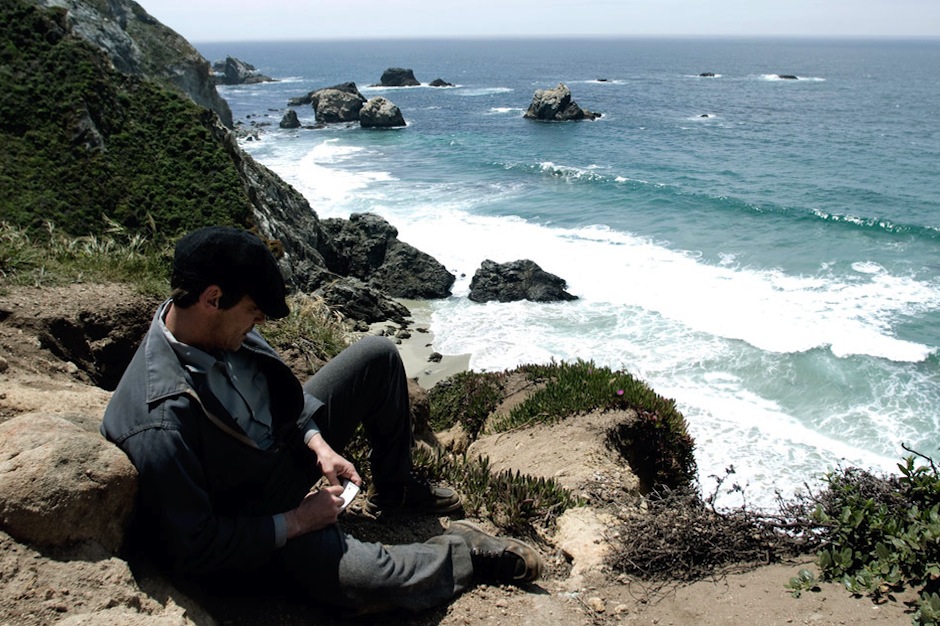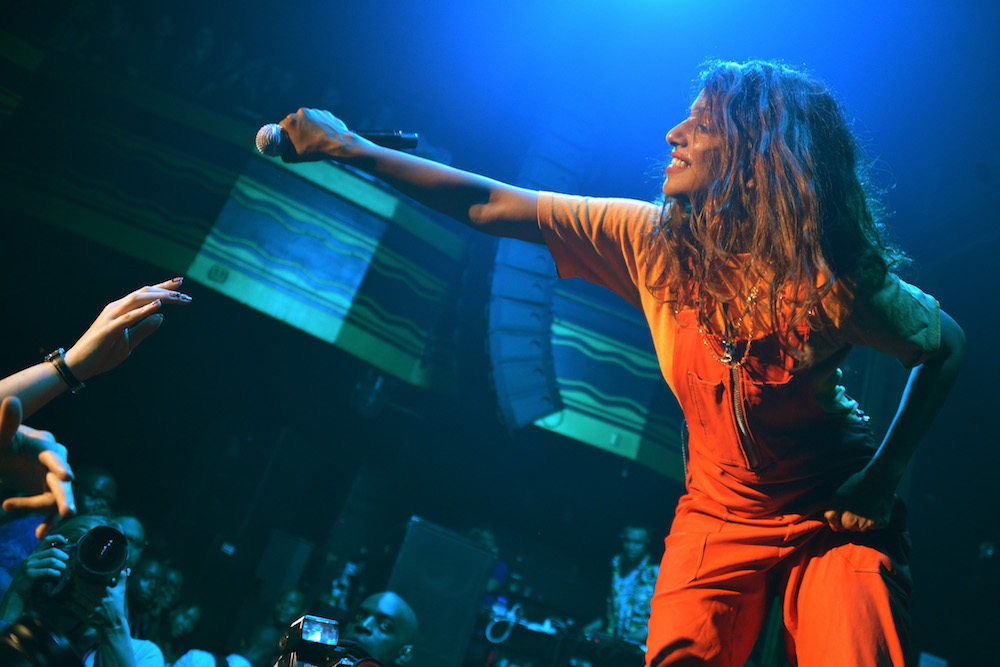Big Sur: In 1960, Jack Kerouac was beat. The publication of On the Road had not only brought him the fame and success that he’d never expected, it resulted in his being dubbed the King of the Beat Generation. A sensitive soul constantly on the look for peace who nevertheless sought solace in many a bottle, Jack was not built to withstand these things and so wound up on a three-year respite at his mom’s in Long Island. When his 1962 novel Big Sur picks up, he’s attempting to return to the life he once knew on the West Coast — one of intellectuals, muses, and spontaneous adventure — while simultaneously trying to straighten out. These conflicting goals wind up intensifying the author’s internal strife over mortality and meaning, and the pressure of it all drives him to an incredible drinking binge that buries him in delirium.
A quintessentially Kerouacian work — intensely ruminative and not at all beholden to prevailing theories on plot — Big Sur would be a challenge for any filmmaker to take on, but director Michael Polish quickly places us inside of his subject’s head, “almost 40 years old, bored and jaded.” He’s helped along by Jean-Marc Barr (a Lars von Trier regular), whose weather-beaten voice, kind eyes and strong jaw make him a shoo-in for Jack. With a solid cast filling in for the legendary literary figures that peopled the book (here liberated of their thin aliases), plus unerringly gorgeous footage of the Central California coast and a perfectly minimal score provided by the National, Polish chooses not to meddle with the source material and mostly benefits for it.
On the plus side, the viewer gets an unflinching view into Kerouac’s pitiful descent into drunkenness while his brilliant friends attempt to nurse him back to help. Lawrence Ferlinghetti (ER’s Anthony Edwards) offers up his cabin; Lew Welch (the fast-talking Patrick Fischler) provides wheels; Neal Cassady (an ecstatic Josh Lucas) goes as far as to share his mistress Billie (Kate Bosworth). But Polish’s adherence to the original text comes with a cost as well: the book itself is a slow build toward any actual conflict, all of which takes place in one exuberant gush of ugly before Kerouac decides that everything is going to be okay so, hey man, don’t worry about it, the end. On paper, the sudden thrill and resolution makes for a breathless finish. On screen, just when you feel we’re really getting somewhere, it’s over. One fast move, and we’re gone.
The Necessary Death of Charlie Countryman: If Guy Ritchie was a romantic at heart, he’d probably make a film just like this. Gifted with the dark humor and stylish action of Snatch, but imbued with bits of magical realism and built around a Shakespearean love story, Charlie Countryman is a genre hybridist’s dream — a see-it-in-the-theater movie as cool as it is comic, pulse-pounding as it is heart-wrenching. This is a major win for first time feature-maker Fredrik Bond, a Swedish commercial director who got his start with a Moby video back in 1999. (The bald beatsmith lends several new tracks to the excellent soundtrack, which also includes M83 and the xx.) Despite a small budget and due to a stellar script, Bond wrangled an ace production team and an A-list cast who conspire to bring this modern fable into vivid existence.
After receiving a vision of his recently deceased mother (Melissa Leo), the aimless Charlie Countryman (Shia LaBeouf) books a flight to Bucharest in search of… well, he doesn’t yet know. But death comes to his door again when a friendly Romanian man expires on his shoulder mid-air, and assigns Charlie yet another post-mortem task: to deliver a seemingly innocuous tchotchke to Victor’s dear daughter Gabi (Evan Rachel Wood). When he finds her at his destination, Charlie falls instantly in love, and after a hilariously macabre sequence of events involving Victor’s corpse and a couple of hash-huffing ambulance drivers, he discovers that Gabi has a dark past.
As our hero bonds with his goofy, drug-loving hostel mates (yes, that’s Ron Weasley popping Viagra and doing pushups) and attempts to woo the cautious object of his affection, the sordid details reveal themselves. And they are, namely, a pair of über-violent gangsters: Gabi’s passionate ex-husband Nigel (Hannibal‘s Mads Mikkelsen) and his icy compatriot Darko (Til Schweiger of Inglourious Bastards). Charlie is beat bloody over and over again yet despite facing the very real possibilities of extreme torture or horrible death, he makes a valiant stand for love that may or may not result in the film’s titular prophecy coming true.
Afternoon Delight: With an eye on Los Angeles’ adult hipster community, television writer/producer Jill Soloway (Six Feet Under, United States of Tara) delivers a pitch-perfect study of love and family in the Peter Pan Generation. Although they have a witty rapport and happy young son, Rachel (Parks and Recreation’s Kathryn Hahn) and Jeff (Josh Radnor of How I Met Your Mother) have reached a sexual impasse. It’s been six months, and the dry spell is indicative of a deeper difficulty: their marriage has become a platter of boredom and distraction, served up with a side of forgotten goals and nesting ennui.
Something’s gotta give and after a useless consultation with her therapist Lenore (Jane Lynch, who effortlessly owns each scene she’s in), Rachel takes a tip from a friend: take Jeff to a strip club, get worked up, go home, “bone.” So they do just that, except for the key final step since Rachel drinks herself sick (this is funnier than it reads). Their outing does result in one very unexpected development, however: though her motivation is a mystery even to herself, Rachel takes a shine to a stripper who gave her a lap dance and, when the lithe-bodied girl with a troubled past loses her lodging, asks McKenna (Juno Temple) to move in. Before long, Rachel discovers her new nanny is a “full-service sex worker,” as McKenna blithely admits, which fuels her wrongheaded fantasy that she can somehow “save” the 20-year-old.
At first their conversations prove enlightening and, more importantly, spur Rachel to pick up relations with Jeff again. But for all her sweetness and, ahem, worldliness, McKenna is a ticking time bomb in their troubled household, and when she goes off, the reverberations will either destroy what’s left of that precarious architecture, or be the warning shockwave that results in the retrofitting Rachel and Jeff’s marriage so desperately needs. As dramatic as all of this seems, there is plenty of levity thanks to the cast’s conversational banter, which ranges from ribald chatter about the film’s favorite subject (the presence of a couple of Bridesmaids players speaks volumes) to Rachel’s side-splitting breakdown when she realizes that all of young Logan’s baby pictures exist only online (“What the fuck is the cloud?”). Let’s hope for happy endings.





